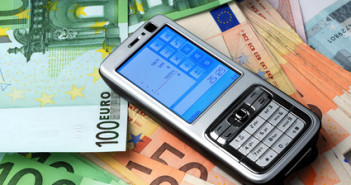- The ECB Meeting Minutes will shed some light on the Bank’s views on the economy.
- Hints about future monetary policy are unlikely but could surprise.
- The common currency is poorly-positioned ahead of the event.
The European Central Bank publishes the Monetary Policy Accounts on Thursday, May 24th, at 11:30 GMT. The document provides more detail on the discussions that led to the April 26th to leave interest rates unchanged. In that meeting, ECB President Mario Draghi acknowledged the slowdown in the euro-zone economies and called it a “moderation.”
He blamed temporary factors: a harsh winter with widespread cases of the flu, strikes, and the early date of Easter, in March instead of April. Draghi also said that this moderation comes after a period of high growth and noted that the forward-looking purchasing managers’ indices still point to upbeat growth rates. Answering a question, he said that the decline has stabilized and that underlying growth remains resilient.
On the other hand, Draghi said that the Governing Council did not discuss monetary policy and the next steps in the Quantitative Easing program. By not getting any closer to removing the extraordinarily loose monetary policy, Draghi disappointed the euro bulls.
Focus on the economy, not future policy
The accounts will, therefore, provide more insights on the ECB’s thinking about the economy rather than on steps to remove stimulus. It will be an embarrassment to Draghi if the minutes reveal a lively discussion about when and how to taper QE. And even more unlikely if the topic of raising interest rates, seen at some point in mid-2019, would come up. Any such unlikely commentary could only be positive for the Euro as they would hint that the exit is not that far.
So if the ECB was discussing the slowdown/moderation, we could learn how worried they are. The Governing Council is divided into doves led by Draghi and hawks, led by Jens Weidmann. Weidmann, the head of the German Central Bank, the Bundesbank, is the leading candidate to replace Draghi at the head of the institution on November 2019. The power struggle within the GC could be seen in the spirit of the document.
If the meeting minutes express concern that the economic malaise spreads into the second quarter, the Euro could suffer. If the wording sticks to the temporary nature of the moderation, the common currency has room to gain ground. It is all about the analysis of the current situation.
Euro positioning
The EUR/USD is suffering from long weeks of falls, dropping some 800 pips from the peak of 1.2555. The Federal Reserve is bent on raising interest rates, and US yields are rising. In the euro-zone, there have been no substantial signs of a bounce in the second quarter.
And it is not only about economics but also about politics. A new government is gradually forming in Italy, and its policies of tax cuts and handouts are likely to increase the debt. Raising the debt beyond Italy’s 132% debt-to-GDP ratio and the Euroscepticism that both coalition parties express is weighing on the Euro.
All in all, the pair is on the back foot, and it would take a very optimistic message to lift it from its doldrums.
The next meeting is in June and it also features new forecasts. Even if we do not hear any announcement about the QE program, Draghi will at least say that they discussed it and that an announcement is due in July or in September.
More: EUR/USD cliff is close, could be a free-fall if it breaks — Confluence Detector
